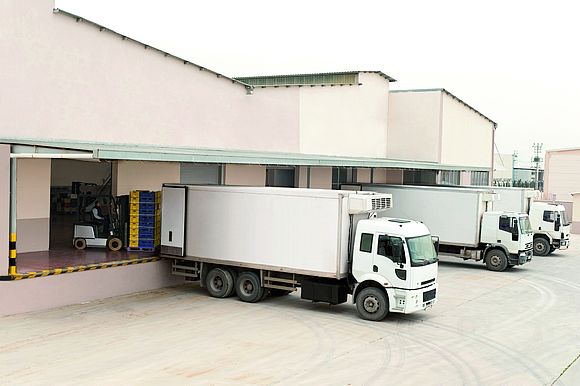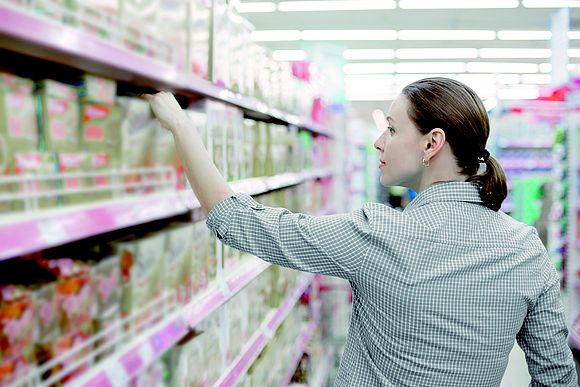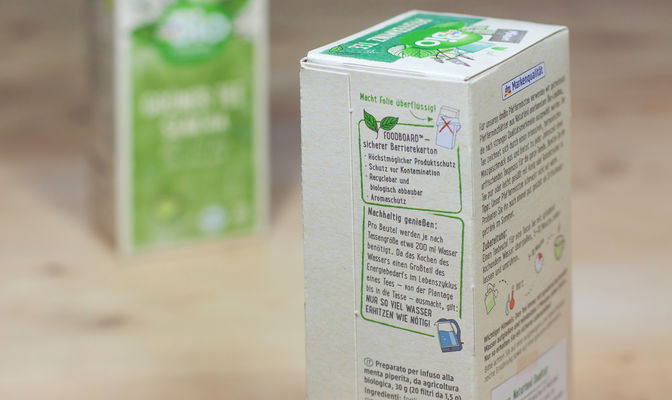Chronology of mineral oil discussion
14.06.2016 - FOODBOARD™, Barriers
Broad Participation in Finding Solution.
| NOV 09 | MAY 11 | SEP 11 | FEB 12 | SEP 12 |
KLZH* – | BMEL*** – first draft of “mineral oil regulation” | BfR – Presentation of mineral oil analysis methods | ÖKO-TEST – evidence of unintended substances in tea | BLE**** – |
| NOV 12 | MAY 13 | JUL 14 | JUL 15 | OCT 15 |
Stiftung | BMEL – second draft of “mineral oil regulation” | BMEL – third draft of “mineral oil regulation” | Council of Europe – takes up the subject of mineral oil migration | FOODWATCH – |
* cantonal laboratory zurich
** federal institute for risk assessment, germany
*** Federal Ministry for Food and Agriculture, germany
**** federal office for agriculture and food, germany
Mineral oils in food – an infinite number of sources
The publications of the Cantonal Laboratory of Zurich (KLZH) on the migration of mineral oil from packaging which gained much attention in the food supply chain, date back to 2009. The cause identified at the time was printing ink containing mineral oil which was used for newspapers and mailings and enter the production chain for paper, cartonboard and paperboard as recovered paper through the recycling process. In the meantime a series of further sources of entry have become known. The 185-page EFSA report (European Food Safety Authority) names an endless list of sources for the origin of mineral oils in food (EFSA Panel on Contaminants in the Food Chain, last update August 28, 2013). These can occur in the additives, processing materials and lubricants used in food production. Packaging and environmental influences can also be the origin of mineral oils: mineral oils used as additives for the manufacture of plastics, adhesives, waxed paper and cartonboard, jute or sisal bags with separating agents and solvents containing mineral oil, oils for producing cans, materials from recycled paper, corrugated board packaging and recycled cartonboard with no barrier as well as printing ink on paper and cartonboard and various sources from the environment.
Production in all times in compliance with regulations – new directives foreseeable
In the light of the above, the European paper and cartonboard industry which always produces in accordance with current regulations has shown great commitment in driving the search for solutions together with partners in the value added chain. The responsible ministries, authorities and trade associations also prioritised the subject with the result that two statutory regulations are now intended to control the issue of the migration of mineral oils from packaging to food in addition to existing rules: the printing ink regulation will inhibit the future use of inks containing mineral oil for printing food packaging, while the mineral oil regulation will set maximum levels for the migration of mineral oil from and through food packaging into food.
In May 2011, the German Federal Ministry for Food and Agriculture (BMEL) presented its first planned directive, “22nd Amended Ordinance regarding the Commodities Regulation” (Mineral Oil Regulation). In the final report of its project to aid the decision-making process from 2012, “Extent of migration of printing ink components from packaging materials into foodstuffs”, the German Federal Office for Agriculture and Food (BLE) regards a functional barrier as “indispensable” in order to protect food from unintended substances, and it recommends such a barrier specifically to the BMEL.
Mineral oil regulation in final preparation
On July 24, 2014, BMEL published what was then its third draft of its mineral oil regulation. The current draft relates to food contact materials which are produced using recovered paper, and it again sets limits for the migration of Mineral Oil Saturated Hydrocarbons (MOSH) and Mineral Oil Aromatic Hydrocarbons (MOAH). Indirect migration from the secondary packaging is included in the limits. Industry and associations had time to comment on the draft until the middle of September 2014. Then there may be a further hearing or changes may be made to the draft. Experience shows that the EU notification process and coordination with WHO can take up to one year.
Subsequently, the regulation is adopted by the German parliament. In the third draft of the mineral oil regulation a transition period of 24 months is provided after promulgation.In Austria, too, the Codex Commission is supporting a barrier solution in order to prevent unintended substances in food in the future. A corresponding recommendation was published by the Federal Ministry of Health (BMG) at the end of 2012. As a result of increasing international interest, the political pressure is also growing to bring about a clear regulation at least in European countries in order to remove the prevailing uncertainty from the market. As the first European institution the Council of Europe refers to mineral oil migration in its draft of a Technical Guide for Paper & Board Materials in July 2015.
FOODBOARD™ is in full compliance with the statutory requirements announced
Since the mineral oil subject became known, Mayr-Melnhof Karton has taken the lead in working on a solution with a team of experts and in consultation of the legislative bodies aiming at highest possible consumer protection. FOODBOARD™ meets the
latest published statutory requirements of a possible “mineral oil regulation” from the German BMEL, and it will thereby ensure sustainable consumer confidence.
For further information, please contact our team of experts:
FOODBOARD@mm-karton.com
Interested? Datasheet and Samples of
FOODBOARD™ can be found here:





![[Translate to English:] [Translate to English:]](/fileadmin/_processed_/9/4/csm_4_Gewinner_7ba52790a9.jpg)
